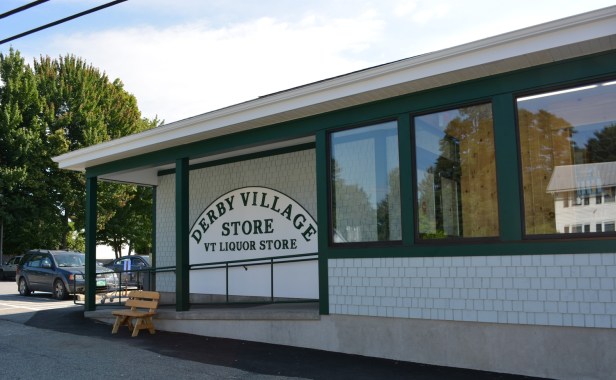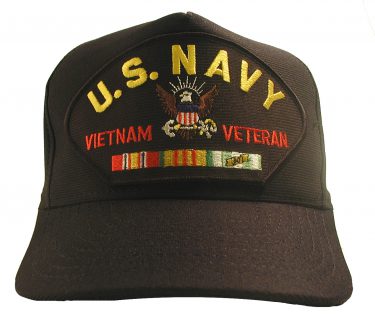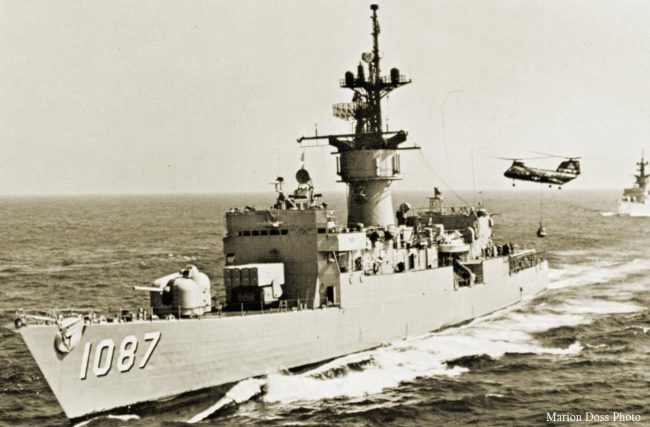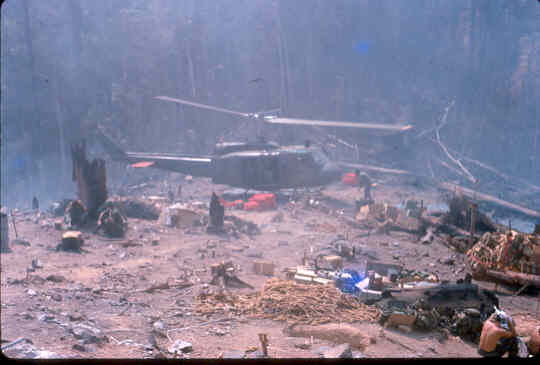The NY Times finished a year-long project titled “Vietnam – 67: Historians, veterans, and journalists recalled1967 in Vietnam, a year that changed the war and changed America. This article, published in March, 2018, is one of many included in the project and written by David Gerstel, a Vietnam veteran and retired officer in the United States Merchant Marine.s The article didn’t have any photos – I pulled these from the internet and took the liberty of including them herein. / John
*****
Fifty years later, what does the Vietnam War mean? And how should we remember the men and women who served in it?
A month ago, I decided to go to my house in Vermont from my home in Canada. The house is near Island Pond, about 25 miles below the Quebec border, in the area called the Northeast Kingdom. The region used to be largely agrarian, scarcely populated, farms with cattle, smallish in acreage, poor in cash. A land of subsistence farming, a practice left over from an earlier century.

There are men I know there, damaged men who raise chickens for eggs and sell them in the town. I regard it as northern Appalachia, land covered with forest that once was open land back when the king needed ship’s masts and timber and sheep were important. In the beginning, there were a few families, fewer than 20 in the 1830s. It stayed like that until a few years ago. Now it is second homes, snowmobiling, four-wheelers, and soft ice cream.

After crossing through immigration and customs I normally stop to pick up groceries at the Derby Village Store, an old-fashioned market with linoleum-covered wood floors, narrow aisles and seemingly pre-school-age cashiers. The choice is reasonable and the prices good. If you don’t care for Walmart, Shop ‘n Save or Shaw’s, you go to the Derby Village Store.
It’s a human-size place, where the carts bump into one another and you have to maneuver around corners with apologies. It does not sell lattes or 12 kinds of salami. It offers an assortment of inexpensive wine and beer. It’s a Kellogg’s and Campbell’s store, with a resident butcher and a polite staff.
I had picked up cheese, eggs, vegetables, chicken tenders, and ice cream. I stopped by the deli counter for sliced meat when I noticed an older man, some would say very old, with a cap on his head above a checked wool jacket too light for the season. His pants were out of fashion, baggy, rolled up and stained with oil, cinched at the waist with a belt that was too long and hung down one leg.
He was slender and one shoulder was bent down, his face narrow, with stubble that showed the years and the tears of time. His hands were clawed with arthritis and spotted, misshapen nails with dirt under them that could not be scrubbed away. He was a man you would not notice, or if you did, not wish to touch as he shuffled behind the cart. He wore a cap that read in proud gold stitching, “Vietnam Veteran U.S.N.”
 It should be said that seeing Vietnam veterans is not unusual in Vermont or any other state, but the generation is declining in number and strength. About 400 die a day of the 2.7 million who served. It was a long time ago, and newer conflicts have taken the stage and headlines. Heroes and graves.
It should be said that seeing Vietnam veterans is not unusual in Vermont or any other state, but the generation is declining in number and strength. About 400 die a day of the 2.7 million who served. It was a long time ago, and newer conflicts have taken the stage and headlines. Heroes and graves.
The veterans of Vietnam are opaque coming to transparent, like onion paper held to the light. Soon they will be crippled relics in homes and memories, photos on a dusty mantel or side table with a yellowed doily. You have passed them unseen a hundred times. You never knew their stories, because they are mostly private and you did not want to ask or know. Beyond the cap or the coat with the same words, they do not share. They wear these things for themselves and to say, I am here, and I was there.
We stood by the counter waiting for our slices of pastrami and teriyaki chicken. The old man carried in his cart milk, ground coffee, a few cans of stew and soups. I could see that most of the food was ready to eat or add water and stir. He likely lived by himself, wife dead or gone.

During the pause of commerce, I asked him where he had served. He responded by telling me simply that he had been in Danang on helicopters, and on a warship off the coast. It was vague and intentional. When he said he had piloted a chopper, I thought most likely a Huey with that iconic whooping sound of the blades biting the air and announcing its flight path, a sound that you know for life and run for the tree line when you hear. He might have flown something larger, a workhorse Chinook, used to carry anything that would fit or be hung, from troops to supplies, small artillery. It went where it was needed; you did what was required.
Between the cutting of the meats and the wrapping of the cheese, each of us looked at the other. Maybe I had fewer scars in the open. Maybe I had more hair, a down winter coat, and better boots, gloves, a wool scarf. It looked as if he had had a hard time after the war. The Kingdom offered a hard life, but easier than what he had done. His boots had uneven soles. His gait was off. He had probably been wounded.
I did not want to ask. Fate had treated me more kindly. But as we used to say, no one gets out of here alive. It could have been my imagination, but our eyes reflected back into ourselves. We were doubled. He did not smile.
He asked if I had been there. He asked because I had spoken first. He could not tell if I was a flatlander, from out of state, just curious or a fool. He wanted to know if he had to explain that place and the cap. His eyes saw the answer before I spoke. He asked if I knew Danang, Nha Trang, Dong Ha, the Highlands and the Delta. How many words did I use to reply? I said two or three, meaning years or tours. How many words do you need for the rainy season, fighting, the heat, humidity and the smell, fear?
I said yes, remembering the firefights over the hills and low mountains at dusk, surrounding the bay at Danang, the jets coming in and dropping bombs and tumbling napalm. Heard the artillery, a different sound, and cadence for every caliber. Beautiful parts in a violent orchestra, with strings, wind instruments and drums.

I watched the earth explode and burn, green to black and dead. A Broadway show sitting on a folding aluminum chair for the afternoon matinee performance with a beer. He chuckled with his eyes, told me about rocket-propelled grenade attacks on the airport, running for cover, strafing runs on the riverbeds and trails, dancing to the music, killing men in the open. He told me about friends on the wall, the memorial we thought was going to be singular, unique, though we learned that was a lie.
I told him about flying supplies into fire bases, coming in hot, breaking hard, slowing and throwing off ammunition and water, grabbing the wounded, engines whining to full power and the aircraft shuddering, lifting off short and hoping that the enemy we hardly knew did not have the range or luck. Dust choking, blinding. Laughing as we gained altitude, at the odds beaten, and hoping to go back for another run. Until next time. Every time we did this, the bets went back to even, the clock unwound.

Our purchases were put on the glass countertop. He took his, tipped his head and cap and headed off, nothing else. I glanced as he turned, said, “So long,” watched him walk to the cash register, pay with bills, and out of the store, leaving his cart at the door. He limped and did not look back. If he had said other than an acknowledgment with his nod, it would have been more than he wanted to say and more than I needed to hear.
What was it, two, three minutes of history? Meeting, touching and knowing that there had been a past and that the present was tinged with the gone before. Walking on. Shared survival and the pleasure of release with the conjugation of years. Nothing to be spoken or shared with clerks, cashiers or office workers. A diminishing private world with signals and symbols. Two men, strangers, known from and for a thousand years in kind, history buried, burned into the circuits of the brain and whatever passes for the soul. Pushed far back and down, down deep as it is possible to go. For a second, I thought I saw a young man, looking out the door of an aircraft at the jungle and rising flashes of light, soaring, swooping and rocking, smiling, wind in his hair, the wind so strong that it made the eyes water and distorted his cheeks.
What he saw was something else. Maybe nothing.
We had validated ourselves at the meat counter in a small rural town under a winter sky. For a day I thought about the man that I would never meet again, except in myself. A man said that in our youths our hearts were touched by fire, and fire is cleansing. I am not sure. Fire leaves ash and scar. And a pale smoke that rises into the heavens and is gone.
Thank you, brother, for such a fine article…one that many of us can relate to. Thank you, too, for your service and sacrifice. Welcome Home!
To view this article and many others as part of the NY Times project, click on this link: https://www.nytimes.com/column/vietnam-67
Thank you for taking the time to read this. Should you have a question or comment about this article, then scroll down to the comment section below to leave your response.
If you want to learn more about the Vietnam War and its Warriors, then subscribe to this blog and get notified by email or your feed reader every time a new story, picture, video or changes occur on this website – the button is located at the top right of this page.
I’ve also created a poll to help identify my website audience – before leaving, can you please click HERE and choose the one item best describing you. Thank you in advance!



A few years ago my wife and I were in Norman Oklahoma visiting grandkids and stopped in a small strip mall restaurant for breakfast. Sitting at a table as we walked up to take our seats at the counter was an older gentleman with his Nam hat on. As I always do I stopped and said was there July 68 July 69 with the 82 nd. He replied on his tour time. Shook hands and went back to eat. As he was leaving he came up to me and shook my hand again and we said goodbye. Short conversation by said a lot.
Less and less of us each day but always a joy to run into a brother
LikeLiked by 1 person
Thank you very much. I feel the same way.currently i am in italy. Lsst week a middle aged came up to me asked me to tell her about the vn war. I would not know where to start.i would not know what to say.
LikeLiked by 1 person
There is no answers to that question that someone who hasn’t experienced war would understand
LikeLiked by 1 person
Thank you very much. I feel the same way.currently i am in italy. Last week a middle aged came up to me asked me to tell her about the vn war. I would not know where to start.i would not know what to say.
LikeLiked by 1 person
1st Cav Medevac, ’69-’70.
LikeLike
Graceful written content on this blog is really useful. Thanks
LikeLike
Enjoyed the article, thanks for posting it John.
LikeLike
Wonderful, very sensible… I enjoyed this article, although it made me sad and pensive. And maybe I didn’t understand proper, but what is about that:
He told me about friends on the wall, the memorial we thought was going to be singular, unique, though we learned that was a lie.
What was a lie? I can only imagine, that there were many more, who should be written on that wall – is it that? Can somebody explain?
LikeLike
Well written about veterans past of our time. Currently attending a VA Anger Management class along with about 12-14 in attendance. Pretty much evenly split with us NAM vets and those of today from Iraq/Afghanistan. We all have our own stories and problems but we are brothers just the same.
LikeLike
A story so well written that I’ve been living it since 9/7/67!
LikeLike
Nice read,
Brought back one of many thoughts of being a grunt and watching the pilot of a Huey rocking his ship back and forth to gain the inches to come forward onto a narrow ridge to dust off a friend. The minutes seemed like hours.
The sound of the screaming Skid inching upwards was almost blocked out by the prop wash, blowing multi colored leaves, branches, and red dirt, likened to confetti over his body.
One of the few times over there I felt hot tears running down my face.
LikeLike
Thanks for posting Mr. Gerstel’s grocery-store encounter with history. His tender account of those rough times, as seen through the eyes of two aging vets, brings to my mind the words of Gen. Douglas MacArthur. “Old soldiers never die; they just fade a way.”
We who came of age during the Vietnam war should not pass up opportunities to do a good work of mercy and reconciliation whenever we take the time to notice–and address– those faces beneath the hats with the insignias. In a very small way, we are doing a work of repairing the world when we stretch out the hand for a shake and ask: “Sir, where did you serve?”
And after listening to the reply, conclude the encounter with appreciation: “Thank you for your service to our country” may sound trite, but I suspect that in the mind and heart of that old-soldier recipient, it is not trite at all.
To hear that brief expression of appreciation is, I suspect, the reason why he wears that hat with the stripes and insignia.
As a non-vet who was in college during that war, I value those opportunities that I occasionally find to greet these old guys. I value those opportunities to take a small step in closing that gap–that gulf of Tonkin gap–between, in our generation, “those who went” and those who didn’t.
Thanks for all you do, pdogg, to continue and broaden the work of reconciliation and education about what happened here and “over there” in our generation, back in the day. This is important stuff.
Keep up the good work.
LikeLike
Thank you, Carey!
On Wed, Sep 26, 2018 at 8:34 AM CherriesWriter – Vietnam War website wrote:
>
LikeLike
similar events in my life-without being a pilot or door gunner. just a lowly grunt depending on the hueys for food, mail, water, and more ammo. and eventually, a ride out. thank you for your story.
LikeLike
Unless you’ve flown a Huey, you missed most of the conversation.
LikeLike
great comment about the Huey. 40 years after the war, when i heard a group f huey’s coming over the ridgeline in vt, i ran for the tree line and ducked my head. if the mind does not remember, the body does.
LikeLike
Great and understandable only if you had been there.
LikeLike
Excellent, maximum flashbacks. Thanks
LikeLike
Good read, good writer!!
A/1/27 Wolfhounds!! 25th ID
66,67,68
LikeLike
A great read. A/1/18/ 1st ID & D/2/12/25th ID 69-70.
LikeLike
Touched in in that place where only certain words of understanding can reach. 198th Americal 1969-70
LikeLike
Excellent,, enough was said……….
LikeLike